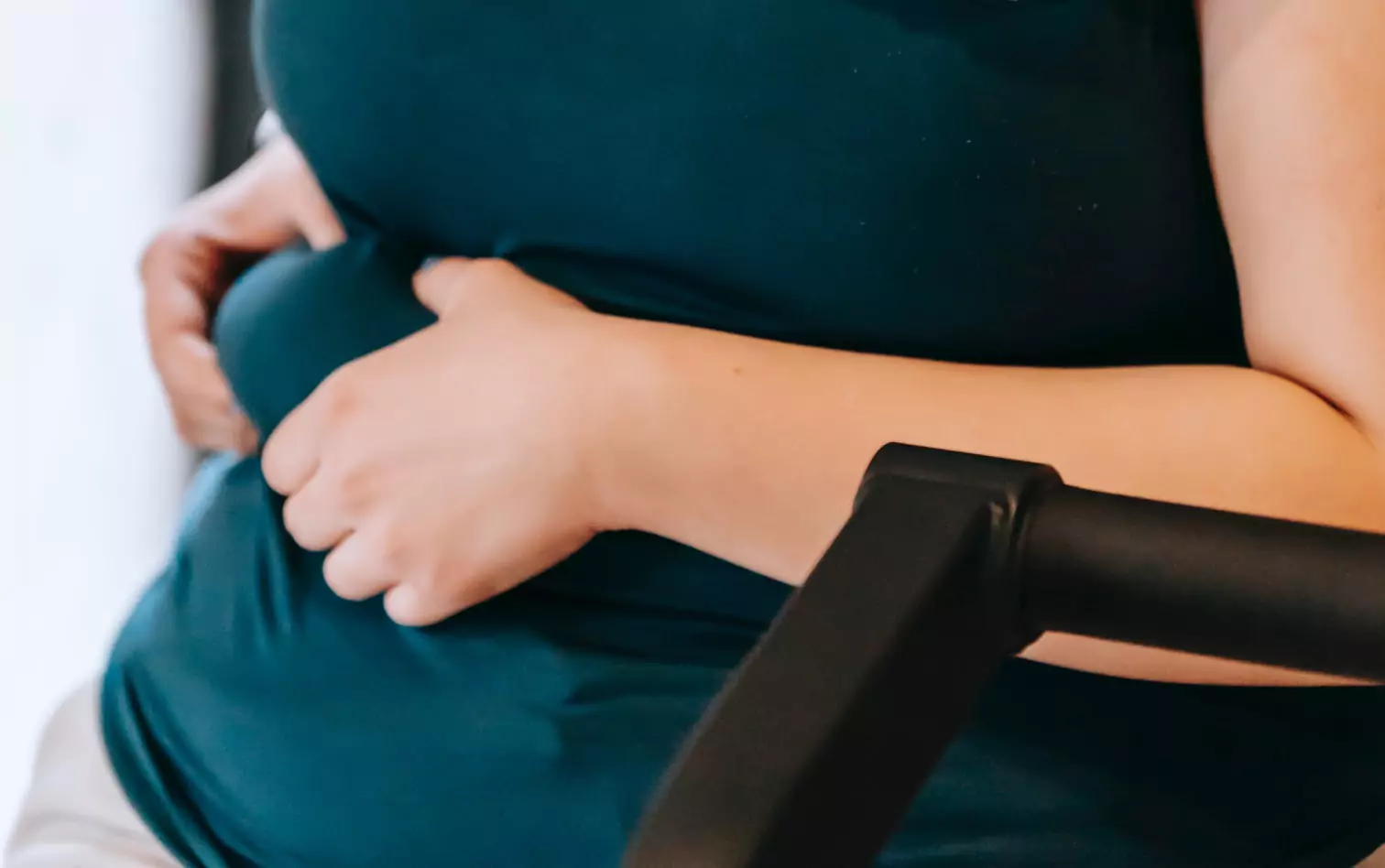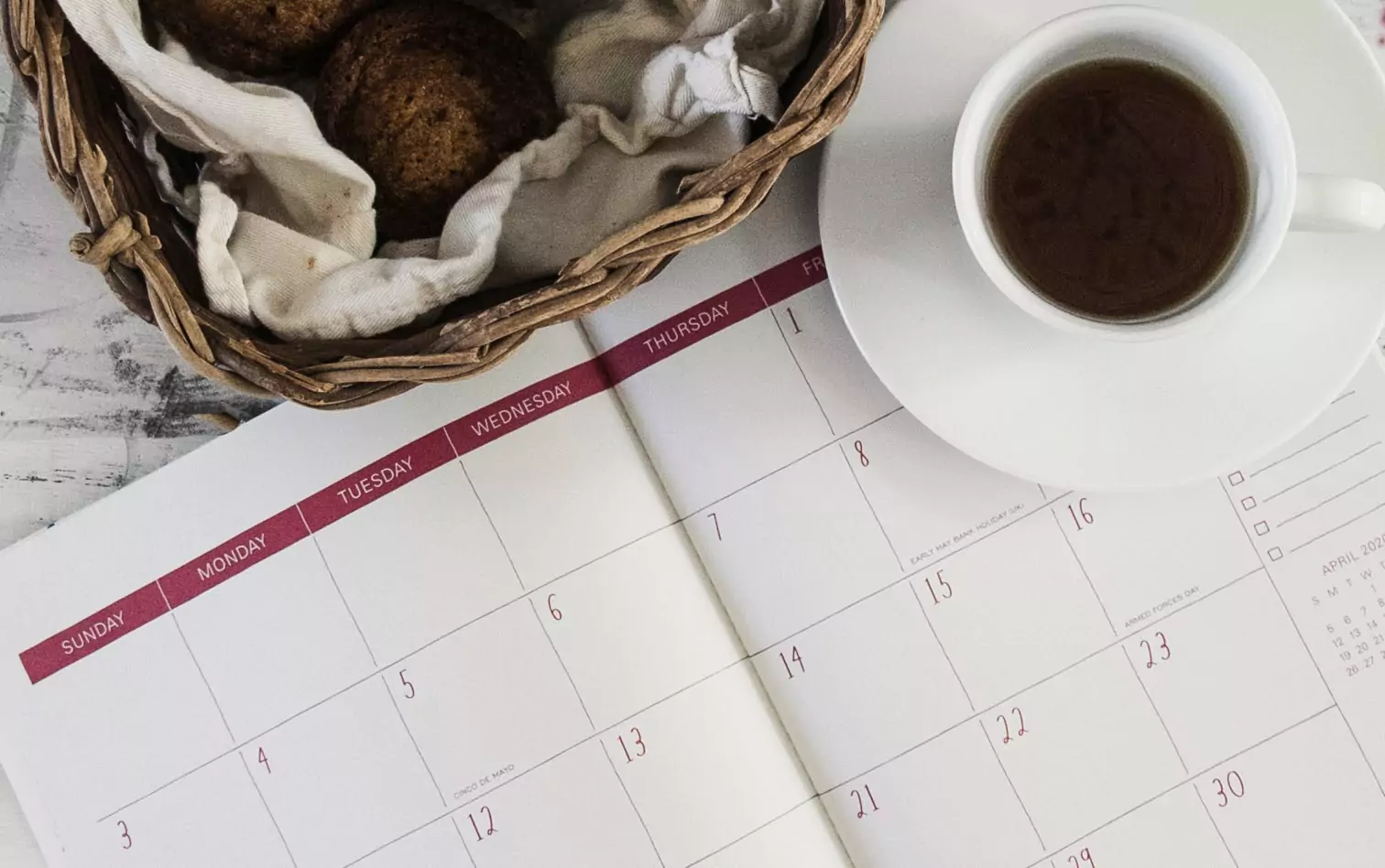How to Stay Motivated After Weight Loss: Tips for Sustainable Success

Key Takeaways
Staying motivated after weight loss isn’t about chasing the number: it’s about building habits that make you feel good and last. This involves celebrating non-scale victories (such as improved energy, practicing self-forgiveness, and understanding your body's unique responses to food and exercise), to prevent weight regain.
Key Points:
- Forget motivation; build momentum instead. Small, consistent habits will take you further than waiting to “feel ready.”
- Create a plan you can actually live with; one built on routines you enjoy and support that keep you grounded.
- The Nutrisense program provides 1-on-1 dietitian guidance, with video calls often covered by insurance, to help you build a personalized plan.
- Track non-scale victories: better sleep, steady energy, confidence in your clothes, and feeling more like yourself.
Staying motivated after weight loss isn’t about chasing the number: it’s about building habits that make you feel good and last. This involves celebrating non-scale victories (such as improved energy, practicing self-forgiveness, and understanding your body's unique responses to food and exercise), to prevent weight regain.
Key Points:
- Forget motivation; build momentum instead. Small, consistent habits will take you further than waiting to “feel ready.”
- Create a plan you can actually live with; one built on routines you enjoy and support that keep you grounded.
- The Nutrisense program provides 1-on-1 dietitian guidance, with video calls often covered by insurance, to help you build a personalized plan.
- Track non-scale victories: better sleep, steady energy, confidence in your clothes, and feeling more like yourself.
From weight loss to weight maintenance
The journey to reach (and keep) your goals is rarely a straight line. You may be trying to prevent obesity or shed a little belly fat. Maybe you’re trying to reach a healthy weight, or maintain it as part of a healthy lifestyle. Whatever the aim, weight maintenance can be an uphill climb.
If your weight-loss efforts have been successful and you’ve met your goals, congratulations! It means you’ve fought cravings, climbed out of weight-loss plateaus, and controlled portion sizes as part of your weight-loss plan.
What should you do after reaching your goal weight?
But now that you’ve shed your goal weight, what’s next? Now comes the part no one talks about: maintaining it.
- Do you go back to the dietary and lifestyle habits you had before your weight loss journey?
- Can you continue with the same activity level to maintain your target weight?
- Should you keep working with a nutritionist or registered dietitian and continue following the food intake from your weight-loss plan?
If you’re unsure what to do to keep yourself motivated after hitting your weight loss goals, you’re not alone. Approximately 80 percent of dieters who lose weight end up regaining it. It’s likely because after the initial push to get to your ideal weight, it can be challenging to sustain healthy habits that keep the weight off.
But don’t be discouraged! There are many ways to maintain healthy dietary and fitness habits even after reaching your goals. Read on to learn more about how you can do this.
Why am I regaining the weight I lost?

The first thing you should do is learn why you’re regaining weight. After all, you managed to burn calories and control your cravings enough to lose weight in the first place, right?
When the scale creeps up again
You did it. After months of focused effort, you finally hit your goal weight. But this morning, you stepped on the scale and the number was up by three pounds. The old panic starts to set in, and your first thought is to restrict your meals for the rest of the day. Instead of reacting, you pause.
This is maintenance, not a sprint. You know that progress isn’t a straight line. You can look at your data to understand what might have influenced the change and focus on the non-scale victories, like how much more energy you have and how your favorite jeans fit perfectly.
Where routines go off track
There are many reasons you might regain weight after reaching your target weight. The initial process of losing weight involves dietary changes, habits, and physical activity. Still, all the effort involved can be challenging to maintain in the long run. Maintaining a healthy weight can support your overall well-being.
Developing a mindset that keeps you going past the initial excitement of shedding the pounds is half the battle won here. Besides, it’s typically easier to revert to old habits than maintain new ones!
Regaining a few pounds doesn’t mean you’ve “lost progress.” It’s a sign to look at what’s shifted: routines, stress, sleep, or meals. Most importantly, remember that there is no one-size-fits-all diet or fitness routine. Everyone’s body is different, and each requires a different weight-loss plan.
Here are a few of the most common reasons for less-than-successful weight loss journeys:
Extreme diets or diet “fads”

Many people who embark on weight loss journeys use extreme diets to lose weight as quickly as possible. Not only are these diets unsustainable over time, but practices like severe caloric restriction can alter your metabolic rate and disrupt the hormones that regulate your appetite.
These things may cause you to begin gaining weight after you “finish” the diet and reach your goal weight.
An unhealthy mindset

Think of weight loss as the start of a longer relationship with your body, not something to finish and move on from. Remember that while not all weight gain is bad, if you do need to shed a few pounds, it’s a good idea to focus on maintaining your weight as much as you do losing it.
When setting goals and timelines for your weight loss journey, remember to factor in your long-term goals. It can help you approach your weight loss with a healthier mindset that will focus on sustainable lifestyle changes.
Unsustainable weight loss habits

Sometimes, weight-loss diets and fitness programs focus on setting rules for losing weight rather than on lifestyle changes that can be sustained over time. The real success story isn’t in losing weight. It’s in weaving the habits that helped you lose it into everyday life. It can be helpful to work with a registered dietitian to maintain a healthy lifestyle and eating habits after you reach your weight-loss goals.
What can you do for sustainable weight loss?

Remember that every journey will look different, and it can take time and patience to discover what a truly healthy and sustainable lifestyle looks like for you. So, don’t get discouraged if your weight seems to be going up and down a bit initially. Instead, focus on a healthy lifestyle that supports long-term weight-loss success.
It can be helpful to speak with a healthcare professional and work with a personal trainer or registered dietitian as you settle into life at your target weight. They will help you determine the appropriate diet (calorie intake, healthy foods, and so on) and activities you should engage in to maintain your target weight. You will need to factor in genetics, gender, age, and schedule when making choices after your initial weight-loss journey.
Find the right Nutrisense programto turn insight into progress.
You’ve met your weight goal. Now, learn how to maintain it with Nutrisense
You’ve met your weight goal. Now, learn how to maintain it with Nutrisense
Here are some things to consider to help you make yours a long-term weight loss success story:
Create a sustainable eating schedule

Eating on a schedule can help your metabolism maintain itself. Good eating habits can also support sustainable weight loss. Creating a routine around your meals can make it easier to make eating healthy foods habitual. On the flip side, skipping meals and eating at odd times (especially late at night) can contribute to gaining weight again after you lose it.
Integrate core food types in every meal
It’s important to balance every meal, not just your dinner plate. Integrate healthy fats, protein, carbohydrates, and fiber foods in every meal. Healthy fats, protein, and fiber are vital ingredients for a healthy, happy gut and glucose level.
Make hydration a habit

Hydration is a crucial habit to form if you haven’t already. Water can help you lose and maintain a target weight by acting as an appetite suppressant and helping you burn calories! Drinking enough water helps your body recognize when it is full and increases your metabolism.
Stick to a sleep schedule
Did you know that getting enough sleep positively affects weight loss and weight maintenance? Studies have shown that people who don’t get enough sleep have lower levels of leptin, a hormone that controls your appetite, and higher ghrelin levels. Ghrelin is the hormone that increases your appetite.
Consider getting professional help

Working with a professional could help you understand and build sustainable lifestyle changes. Consider working with a registered dietitian and a personal trainer to develop your weight-loss maintenance plan. They will bring years of education and expertise to the table as they build the right plan for your needs. They will also be there to hold you accountable and cheer you on!
Learn more about your body
What does healthy eating look like for you? Are you overeating or undereating? What’s the best weight management plan for your body? Consider using tools and gadgets to track your blood pressure, heart rate, daily calorie burn, and glucose levels to better understand your body.
For example, wearing a Fitbit or an Apple watch will help you see how the physical activity you engage in works for your body. And you can learn more about your glucose levels with a continuous glucose monitor or glucose biosensor. You can also focus on learning more about the foods you eat and the health benefits they provide your body by working 1:1 with a registered dietitian specializing in weight loss.
“I was able to lose 20 to 25 pounds. I was able to keep that off through the holiday. And I'm so proud about that.”
— Amber Aiken, Nutrisense member
Create habits that minimize stress

Stress can affect your weight loss goals, too. Stress releases a hormone called cortisol, which is linked to weight gain. In our crazy, modern world, it can be hard to minimize stress, but try finding moments of peace and develop habits like journaling, meditation, or walking to reduce your stress levels and help you find a daily sense of calm. It can help reduce your risk of weight gain due to hormone-related appetite stimulation.
Practice patience
Losing weight shouldn’t be a race against time. Use patience when developing a plan for weight loss to be something that can be created and sustained over time, because crash dieting can result in constant weight fluctuation. Proper weight management relies on making changes you can stick to rather than temporary, unrealistic routines.
Build a support system

Whether you choose to work with professionals or not, tell a friend or family member about your goals so they can encourage you to stick to them. If you know someone who also wants to lose weight, ask them to go on the journey with you!
Keep a progress journal
Writing down your goals is a great way to start your journey and will give you something to look back on as you begin to achieve each one. It can also be helpful to write down daily eating habits and exercise routines. It will also help you stay accountable.
Set SMART Process Goals and Track Non-Scale Victories
Use SMART criteria to make goals Specific, Measurable, Achievable, Relevant, and Time-bound. Set SMART, process-based goals and track non-scale victories beyond the scale after you reach your target. This keeps your focus on daily actions and a broader view of progress.
Process goals are actions you repeat, like meal planning or walking after dinner. Outcome goals describe results, like maintaining weight within a certain range.
Capture progress in different ways. Consider body composition markers like waist and hip measurements, notes on how clothes fit, and progress photos under the same lighting each month. If you are in the Nutrisense program, log meals and review your glucose patterns in the app to align process goals with your day-to-day data.
Be mindful of your body

Remember to pay attention to how you feel during and after your weight-loss journey. Let your body rest when needed, and pay attention to when you feel hungry and feel full. If you aren’t feeling like your best self at any point along your journey, you may not be getting the nutrients and rest you need.
Find a fun exercise or activity
When looking for physical activity to engage in on your weight-loss journey, make sure it's fun. You’ll only build a sustainable habit if you enjoy doing it. If you don’t like gym environments, find a sport that you can do outside, like tennis or running. Make weight loss fun! You might even make new friends who share your interests.
Consider meal prepping

It can be easier to stick to your commitments if you have a solid plan. Consider meal prepping for the week if you tend to be busy and grab food on the go, or if you find it hard to resist temptation. You could even start meal-prepping your lunches so you have something healthy ready to go during your workday.
Practice self-forgiveness
You’ll have off days, and that’s okay. What matters is how quickly you come back to what works for you. You might make a mistake or find that you have trouble adjusting to new habits, and that’s okay. Remember, tomorrow is a new day, and it’s never too late to get back on track!
Staying motivated after you hit your weight loss goals: FAQs
Q1. How can Nutrisense support weight maintenance after I reach my goal?
A1. Nutrisense pairs 24/7 glucose trends from a biosensor with 1:1 guidance from a registered dietitian. The sensor measures glucose in interstitial fluid. In the app, you can log meals and activities, run simple experiments to see patterns, and use coaching to set sustainable routines that fit your day.
Source: CGM benefits: diet and weight loss
Q2. Do I need to keep wearing a sensor during maintenance, or can I pause?
A2. You can use sensors on your own schedule. When you sign up for a program like the Nutrisense CGM program, you typically receive two sensors per month, depending on the plan you choose. You can also pause your account within the limits of your plan, then resume when you want a fresh check-in.
Source: Nutrisense plans
Q3. What should I track besides weight to stay on course?
A3. In the Nutrisense App, you can log meals, activity, sleep, and notes, and review glucose patterns over time. Many members use tags and experiments to see how timing, macros, and movement relate to their day. These markers help you spot patterns so you can adjust and maintain progress.
Source: Nutrisense App
Q4. Are nutritionist video calls available after the first month, and will insurance cover them?
A4. Yes. At any time during your program, you can work with registered dietitians through insurance-covered video calls. Nutrisense accepts many plans from major providers in all 50 states. Coverage varies by plan. You can check eligibility in minutes before you commit.
Source: Nutritionist video calls
Q5. Can I swim or shower with the sensor while keeping up my workouts?
A5. Yes. Glucose biosensors are typically waterproof up to 8 feet (2.4 meters), so you can bathe, shower, or swim. For longer wear during activity, many use adhesive covers. To protect performance, avoid exposing the sensor to extreme heat or cold, such as saunas or ice baths.
Source: How Nutrisense works
How can Nutrisense support weight maintenance?
Your glucose can significantly impact how your body feels and functions. That’s why stable levels are an important factor in supporting overall well-being. But viewing glucose isn't enough. With Nutrisense, you’ll learn how to use your body's data to make informed lifestyle choices that support healthy living.
Insurance-covered guidance
Sign up to access insurance-covered video calls with a glucose expert: a personal registered dietitian or certified nutritionist who will help tailor your lifestyle and diet to your goals.
App and biosensors
With the Nutrisense Program, you can monitor your glucose with health tech like glucose biosensors and continuous glucose monitors (CGMs), and analyze the trends over time with the Nutrisense App. This will help you make the most informed choices about the foods you consume and their impact on your health.
Start with our quiz
Ready to take the first step? Take our quiz to find the right Nutrisense program to help you take control.
Go Beyond Glucose Data with Nutrisense
Your glucose can significantly impact how your body feels and functions. That’s why stable levels are an important factor in supporting overall wellbeing. But viewing glucose isn't enough. Nutrisense, you’ll be able to learn how to use your body's data to make informed lifestyle choices that support healthy living.
One-to-one coaching
Sign up to access insurance-covered video calls to work with a glucose expert: a personal registered dietitian or certified nutritionist who will help tailor your lifestyle and diet to your goals.
Monitor and measure what matters
With the Nutrisense CGM Program, you can monitor your glucose with health tech like glucose biosensors and continuous glucose monitor (CGM)s, and analyze the trends over time with the Nutrisense App. This will help you make the most informed choices about the foods you consume and their impact on your health.
Find your best fit
Ready to take the first step? Start with our quiz to find the right Nutrisense program to help you take control.

Kara Collier is a registered dietitian nutritionist and certified nutrition support clinician who is passionate about reshaping how we approach prevention, behavior change, and metabolic health. A Forbes 30 Under 30 honoree, she’s helped over 150,000 people improve their metabolic health using tools like continuous glucose monitors and behavior-focused nutrition strategies. Kara has been featured by Forbes, UC Berkeley, and HLTH, and has appeared on top podcasts like Mind Pump and The Genius Life.




